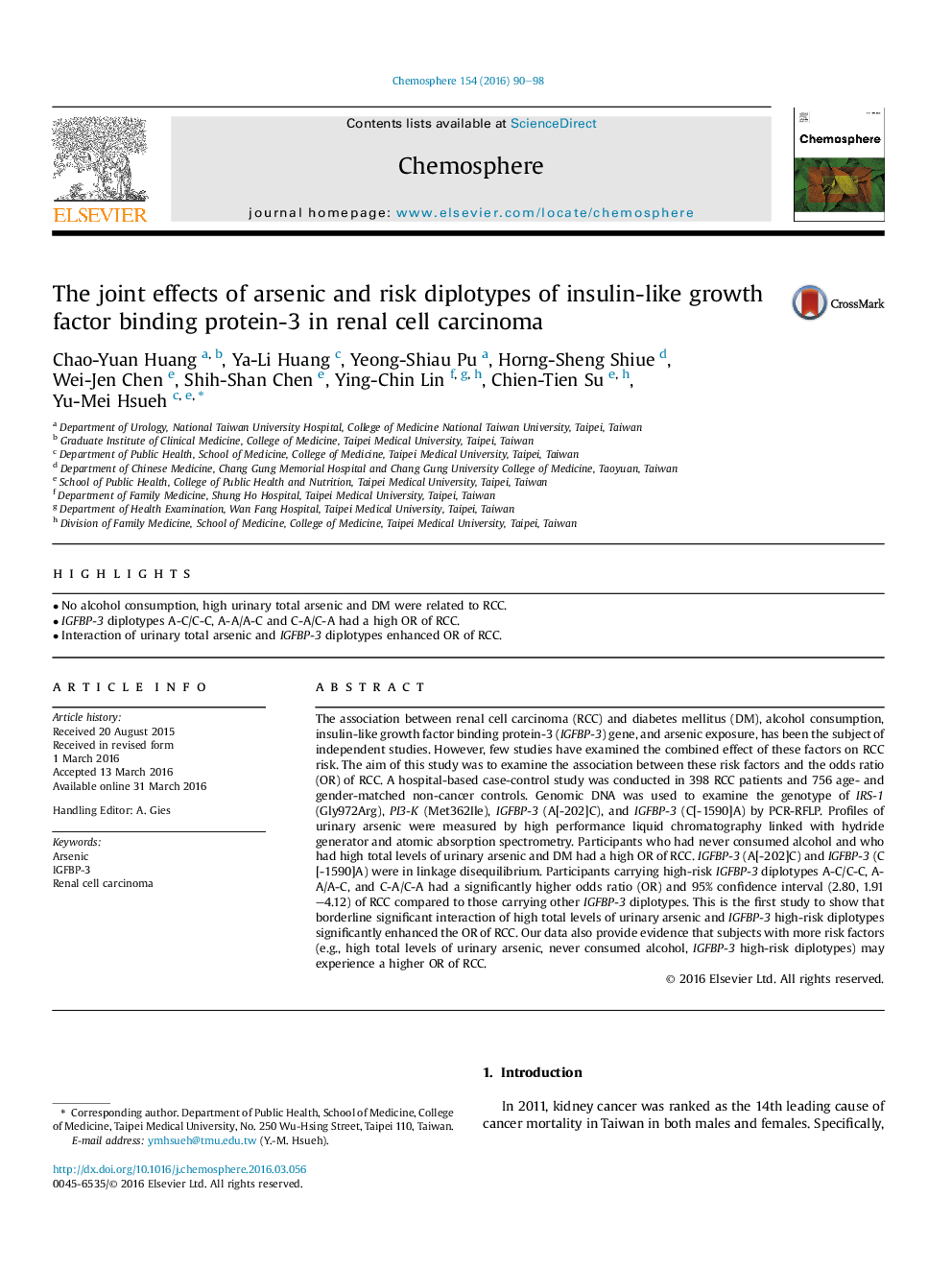| Article ID | Journal | Published Year | Pages | File Type |
|---|---|---|---|---|
| 6306670 | Chemosphere | 2016 | 9 Pages |
Abstract
The association between renal cell carcinoma (RCC) and diabetes mellitus (DM), alcohol consumption, insulin-like growth factor binding protein-3 (IGFBP-3) gene, and arsenic exposure, has been the subject of independent studies. However, few studies have examined the combined effect of these factors on RCC risk. The aim of this study was to examine the association between these risk factors and the odds ratio (OR) of RCC. A hospital-based case-control study was conducted in 398 RCC patients and 756 age- and gender-matched non-cancer controls. Genomic DNA was used to examine the genotype of IRS-1 (Gly972Arg), PI3-K (Met362Ile), IGFBP-3 (A[-202]C), and IGFBP-3 (C[-1590]A) by PCR-RFLP. Profiles of urinary arsenic were measured by high performance liquid chromatography linked with hydride generator and atomic absorption spectrometry. Participants who had never consumed alcohol and who had high total levels of urinary arsenic and DM had a high OR of RCC. IGFBP-3 (A[-202]C) and IGFBP-3 (C[-1590]A) were in linkage disequilibrium. Participants carrying high-risk IGFBP-3 diplotypes A-C/C-C, A-A/A-C, and C-A/C-A had a significantly higher odds ratio (OR) and 95% confidence interval (2.80, 1.91-4.12) of RCC compared to those carrying other IGFBP-3 diplotypes. This is the first study to show that borderline significant interaction of high total levels of urinary arsenic and IGFBP-3 high-risk diplotypes significantly enhanced the OR of RCC. Our data also provide evidence that subjects with more risk factors (e.g., high total levels of urinary arsenic, never consumed alcohol, IGFBP-3 high-risk diplotypes) may experience a higher OR of RCC.
Keywords
Related Topics
Life Sciences
Environmental Science
Environmental Chemistry
Authors
Chao-Yuan Huang, Ya-Li Huang, Yeong-Shiau Pu, Horng-Sheng Shiue, Wei-Jen Chen, Shih-Shan Chen, Ying-Chin Lin, Chien-Tien Su, Yu-Mei Hsueh,
